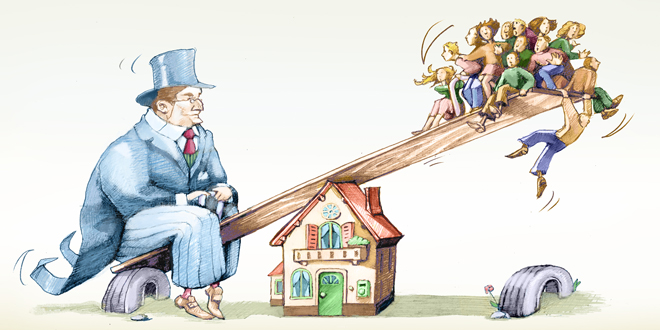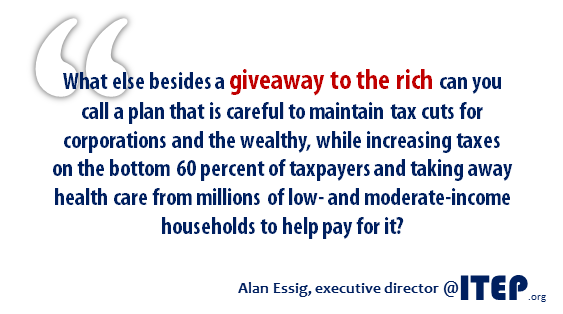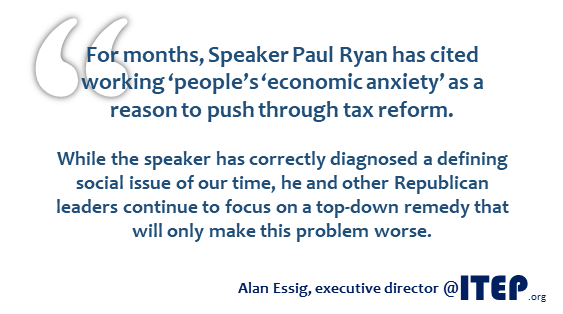
ITEP's Research Priorities
- 2025 tax debate
- Blog
- Cannabis Taxes
- Corporate Taxes
- Corporate Taxes
- Earned Income Tax Credit
- Education Tax Breaks
- Estate Tax
- Federal Policy
- Fines and Fees
- Georgia
- Immigration
- Income & Profits
- Income Taxes
- Inequality and the Economy
- ITEP Work in Action
- Local Income Taxes
- Local Policy
- Local Property Taxes
- Local Refundable Tax Credits
- Local Sales Taxes
- Maps
- Media Quotes
- News Releases
- OBBBA
- Other Revenues
- Personal Income Taxes
- Property & Wealth
- Property Taxes
- Property Taxes
- Publications
- Refundable Tax Credits
- Sales & Excise
- Sales, Gas and Excise Taxes
- Sales, Gas and Excise Taxes
- SALT Deduction
- Select Media Mentions
- Social Media
- Staff
- Staff Quotes
- State Corporate Taxes
- State Policy
- State Reports
- States
- Tax Analyses
- Tax Basics
- Tax Credits for Workers and Families
- Tax Credits for Workers and Families
- Tax Guide
- Tax Principles
- Tax Reform Options and Challenges
- Taxing Wealth and Income from Wealth
- Toolkits
- Trump Tax Policies
- Video
- Webinar
- Who Pays?
Inside Sources: GOP Tax Plan Is a Corporate Handout
December 5, 2017
Why are these corporate tax cuts considered “necessary,” when so many big corporations have been posting record profits and have an effective tax rate of less than 20 percent, or even 10 percent. Some corporations don’t pay any federal taxes at all. Yet an analysis by the Institute on Taxation and Economic Policy earlier this […]
They Can’t Help Themselves: GOP Leaders Reveal True Intent Behind Tax Overhaul
December 4, 2017 • By Jenice Robinson

The hand-written scrawls in the margins of the hastily written 500-page Senate tax bill had barely dried when lawmakers began to reveal the true motivation behind their rush to fundamentally overhaul the nation’s tax code.
Senate Okays Unpopular Plan to Widen Income Inequality, Make the Rich Richer
December 2, 2017 • By Alan Essig

But so far, Republican leaders have demonstrated that, for them, the only voices that matter in this debate are those that fund their campaigns.
New York Times: Trump Says GOP Tax Bill Won’t Benefit Him. That’s Not True
November 30, 2017
Mr. Trump still has not released his tax returns, so it’s impossible to know to what extent he would personally benefit from the legislation. But there’s little doubt that he would. “Lower pass-through rates and the repeal of the alternative minimum tax — those two alone are so hugely beneficial to Trump that I have […]
Wall Street Cheat Sheet: Ted Cruz Sure Loves the Top 1 Percent
November 30, 2017
Because he didn’t really elaborate, it’s hard to understand what Cruz was trying to say here. When Democrats say that the lionshare of the tax breaks in the Senate bill are going to the rich, they do not mean all taxpayers. They mean wealthy Americans. According to Sanders, 60% of the tax breaks in the […]
Quartz: The Republican tax plan takes aim at one of the biggest engines of US growth
November 30, 2017
As Los Angeles Times Jim Puzzanghera pointed out recently, California is already one of a handful of states that pays more to the federal government than it receives. The Republican plan currently being debated in the Senate is likely to make this imbalance even larger. While most of the country can expect to benefit from […]
KQED: UC Grad Students Join National Protest Against GOP Plans to Increase Their Taxes
November 29, 2017
Matt Gardner, a senior fellow at the Institute on Taxation and Economic Policy, said the decision not to tax waived tuition fees is in line with standard taxation principles. The same logic is at work behind the reason why we don’t tax workers for employer-sponsored health insurance. “When you have income that you can’t really […]
The Atlantic: The Big Blue Losers in the GOP Tax Plan
November 28, 2017
Between the mortgage and SALT limits, the bills hit many upper-middle-class taxpayers, especially in blue states. The Institute on Taxation and Economic Policy calculates that by 2027 the Senate bill would raise taxes on about 45 percent of households between the 80th and 95th income percentiles in California, Virginia, New Jersey, and New York; and […]
Minneapolis Star-Tribune: Luring corporate money from tax havens is a big unknown for reform proposals
November 27, 2017
U.S. companies booked 61 percent of foreign earnings in just 10 low-tax countries in 2014, according to the Institute on Taxation and Economic Policy (ITEP). In five of those countries — Bermuda, the Cayman Islands, the British Virgin Islands, the Bahamas and Luxembourg — American businesses claimed profits that exceeded the value of the nation’s […]
San Francisco Chronicle: GOP tax bills could shield multinationals’ future overseas profits
November 25, 2017
Currently, the U.S. government taxes foreign earnings at the same 35 percent corporate rate charged on domestic profits, but only when the foreign earnings are returned to the United States. Under the bills moving through Congress, overseas profits would be mostly excluded from U.S. taxation. Instead, those profits might be taxed by the nations where […]
Bloomberg: Should the Upper Middle Class Take the Biggest Tax Hit?
November 21, 2017
And maybe they should. Higher taxes on the upper middle class make sense to some liberal tax experts—but only if the proceeds are used the right way, they said, for things like better health care, more affordable college, and rebuilding infrastructure. Under the House bill, though, any new tax revenue is used to offset tax […]

ITEP has analyzed each of the tax proposals advanced by the House and Senate in recent weeks. While some details have changed, the bottom line is the same: The plans would disproportionately benefit corporations and the wealthy. The Senate tax plan ITEP’s latest analysis examined the proposal that passed the Senate Finance Committee on Nov. […]
Washington Post: For Some GOP Women, the Ultimate Women’s Issue Right Now Is the GOP Tax Plan
November 20, 2017
However, according to the Institute on Taxation and Economic Policy, Alabama voters may be taking a bit of a risk by assuming that a vote for the GOP tax plan is in their best interest. According to the non-profit, non-partisan research organization, nearly half — 48 percent — of the federal tax cuts would go to the […]
American Prospect: We Should All Be Sick and Tired of This Tax Debate
November 20, 2017
That’s because this “tax cut” is actually a tax increase for millions of Americans. According to the Joint Committee on Taxation, Congress’ official scorekeeper on tax issues, the Senate’s version of the bill would increase taxes on all income groups making under $75,000 per year. The Institute on Taxation and Economic Policy says the bill […]
Washington Post: Almost Third of Marylanders Are Set to Pay Higher Taxes
November 18, 2017
The Institute on Taxation and Economic Policy has determined that 30.5 percent of Marylanders would pay substantially higher taxes under the Republican plan. The capping of deductions for state and local taxes would make this bill onerous to Maryland residents. The removal of the tax deduction for student loan interest is mean-spirited and anti-education. Read […]
The Guardian: Drug Traffickers Taught the Rich How to Hide Money in Tax Havens
November 18, 2017
A study by the Institute on Taxation and Economic Policy published this year shows that 366 of the 500 American companies with the highest revenue (those that are part of the Fortune 500) use subsidiaries located in tax havens to reduce their income taxes. Among these are important banks, financial institutes, pharmaceutical corporations, and multinational […]
New 50-State Analysis: Senate Tax Plan Would Increase Taxes on at Least 29 Percent by 2027
November 18, 2017 • By ITEP Staff
Poorest 20 percent would receive the biggest tax hike A 50-state analysis of the tax plan that passed the Senate Finance Committee finds that the bottom 60 percent of households overall would face a tax hike in the later years of the plan, while the richest 1 percent, corporations, and foreign investors would continue to […]
The Baltimore Sun: Andy Harris Is No Friend of the Middle Class
November 17, 2017 • By ITEP Staff
Dr. Harris knows that the Institute on Taxation and Economic Policy has determined that 31 percent of middle class Marylanders will pay substantially higher taxes under this bill. The elimination of deductions for state and local taxes make this bill onerous for “blue states” like Maryland. Dr. Harris also knows that elimination of personal exemptions […]
Washington Post: The GOP Tax Plan Is Moving Forward. It’s a Big Scam on Trump’s Base
November 17, 2017
While this JCT document doesn’t say exactly how many people will see their taxes rise, other analyses give us a hint. For instance, the Institute on Taxation and Economic Policy estimates that under the Senate plan, 19 million households will see a tax increase in 2019, and more than 23 million will get a tax […]
Associated Press: Derided by Critics, Trickle-Down Economics Gets Another Try
November 17, 2017
In the view of Carl Davis, research director at the left-leaning Institute on Taxation and Economic Policy, the track record for supply-side economics “is not particularly inspiring.” In 1981, in the midst of a deep recession, President Reagan pushed through an aggressive tax cut. The economy did rebound strongly over the next few year. But […]
New York Times: Confused by Tax Bills?
November 17, 2017
Compared with current law, the House bill, which was passed Thursday, would raise personal federal income taxes on California, New Jersey, New York and Maryland residents by $16.7 billion in 2027, according to an Institute on Taxation and Economic Policy analysis. Florida and Texas, however, would get $31.2 billion in cuts. Read more
San Francisco Chronicle: Tax Reform–Look out Californians
November 17, 2017
Another point to consider: The corporate tax cuts are permanent, while the individual tax cuts are not. Nationwide, only one income group — individuals making $20,000 to $30,000 — would still be receiving a tax cut by 2027. An analysis by the Institute on Taxation and Economic Policy projected that Californians would be paying a […]
House Passes Tax Cuts for the Rich and Corporations as a False Cure for Working People’s Economic Anxiety
November 16, 2017 • By ITEP Staff

For months, Speaker Paul Ryan has cited working people’s “economic anxiety” as a reason to push through tax reform. While the speaker has correctly diagnosed a defining social issue of our time, he and other Republican leaders continue to focus on a top-down remedy that will only make this problem worse.
New York Times: Billionaires Desperately Need Our Help
November 16, 2017
Now it’s fair to complain that the tax plan over all doesn’t give needy billionaires quite as much as they deserve. For example, the top 1 percent receive only a bit more than 25 percent of the total tax cuts in the Senate bill, according to the Institute on Taxation and Economic Policy. Read more
The Washington Post (Morning Plum): Tax Plan Favors Trump States
November 16, 2017
The House GOP tax plan nixes most state and local deductions, hitting higher-taxed states harder. Jim Tankersley reports on a new analysis by Carl Davis of the Institute on Taxation and Economic Policy in Washington: The House bill would raise personal taxes on Californians and New Yorkers by a combined $16 billion in 2027, Mr. […]
